Check out some books by your tutor Fiona Veitch Smith … (click on the book covers to find out more)
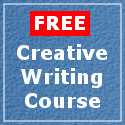 Hello everyone, welcome to the first session of our free online creative writing course. Over the next eight sessions we will be looking at different aspects of creative writing and trying our hand at various forms. I’d strongly encourage you to have a go at the exercises along the way, and please feel free to leave comments or ask questions at the end. If you have arrived on this page without first reading the home page and frequently asked questions page (on tab above) please go back and do so now. If you have read them, enjoy the course!
Hello everyone, welcome to the first session of our free online creative writing course. Over the next eight sessions we will be looking at different aspects of creative writing and trying our hand at various forms. I’d strongly encourage you to have a go at the exercises along the way, and please feel free to leave comments or ask questions at the end. If you have arrived on this page without first reading the home page and frequently asked questions page (on tab above) please go back and do so now. If you have read them, enjoy the course!
Creativity and Art
What is creativity? The Collins dictionary defines it as ‘the ability to cause something to exist’. Without getting into too much of an existential discussion, I would say that with every thought that is expressed, something has been created. It was Descartes who said: ‘I think, therefore I am’; well I would add, ‘I think, therefore I create’ (do you feel a God complex coming on?). But how do we express our thoughts? Sometimes we do it verbally, other times by body language and still again through what is loosely termed ‘art’.
Art takes place when a thought is expressed and fixed in a way that other people may experience it on an aesthetic level – through music, writing, painting, sculpture, choreography and so on. Many artists say that their best work takes place when they ‘by-pass’ the thought and simply express the feeling. This may be true, but for writers, who use a verbal medium, a feeling must first be converted into a thought before it can be put into words. Don’t over analyse the thought before you express it, as this way you can ‘channel’ the purest interpretation of the feeling, but some cognitive process needs to take place. Some writers prefer to mull over a thought and give it form before they put pen to paper – I’m one of them – but it’s good practice to try and switch off the ‘editor’ at least for the first draft. First response trigger exercises are useful in this regard and can release some unexpected words and images.
Exercise 1:
Write down your first response to these words or phrases:
- Blue ball
- And that’s when the sadness came
- Coffee
The first task of a good writer is to convert feelings into thoughts and then into words. This is the raw material that can then be converted into something more permanent. Some writers refuse to toy with their first drafts, believing their creativity will be diluted; I disagree. Allowing your critical mind to improve a piece of writing is where the craftsman meets the artist. Something produced only by the former will lack soul and something by the latter will lack form. Good writing is a combination of art and craft.
For public consumption
Art, of course, is highly subjective and one woman’s masterpiece is another woman’s unmade bed. We all have the ability to create, but whether or not our creation is ‘art’ must be left to the eye or ear of the beholder.
In this session we will look at how you can craft those creative thoughts into creative writing to share with other people. And that’s what sets ‘public’ writing apart from ‘private’ scribblings – there’s a perceived readership in mind. When I ramble on in my journal, I am the only one who will read it (hopefully!) so my only concern is getting my thoughts down on paper. The moment I want someone else to read it I begin to consider ways to improve the presentation and craft it into something more aesthetically pleasing. I consider which words may sound more colourful, whether or not my sentence structure is grammatically correct, whether I’m using evocative imagery, and so on.
Story, feeling or image?
What is it about those creative thoughts that you think might be of interest to other people? Do they speak of an eternal truth or a common experience? Do they make you laugh or cry? Do they suggest a story that will entertain or a poem that captures a moment that must be shared?
Exercise 2: In 50 words or less write down why you want to write then list three creative thoughts that you’ve had lately (each 10 words or less). These may be an image, a musing, a ‘truth’, a story, or so on. If you haven’t had any, take yourself for a walk and look around; what grabs your imagination? Browse through a newspaper or a magazine; do any stories or pictures catch your attention? Think back over your day; did anything funny, charming, shocking or unusual happen to you or someone you know?
Poetry or prose?
Some people are more suited to writing poetry than prose and some people do well at both. Although we won’t be discussing it in this course, other people are more suited to script. I’m one of them. I’ve had relative success as a prose writer and in fact have managed to earn a living from it, but it’s taken years of hard work to get to this point. I recently branched out into scriptwriting and found that I had much more of a natural ability. (If you’re interested in finding out more about scriptwriting, check out getting started in playwrighting). You may find that you’ve been trying to make it as a poet when actually you’re more suited to prose. Now I don’t want to pigeonhole anyone, but ask yourself the following questions:
- Are you more attracted to films than stills?
- Do you enjoy telling people ‘stories’ from your life?
- Do you prefer to read stories or poems?
If yes, to these, then you may be more suited to prose than poetry. If no, then the opposite may be true. If it’s ‘sometimes yes, sometimes no’ then perhaps you are suited to both. We shall be looking at how to write poems in more detail in session 7, but suffice to say, a poem is like a snapshot of a moment. If you can’t rest until you know what happened before and after, then prose may be your genre.
Exercise 3: Take one of the three creative thoughts you wrote down in Exercise 2, then list 20 separate words that communicate or describe that thought. Do not, at this stage, link the words into sentences. Once you have your 20 words use them in a poem of 16 lines or less. Then, take the same 20 words and work them into a short story of under 300 words. Which exercise came more easily? Which form has best communicated your creative thought?
Further Resources:
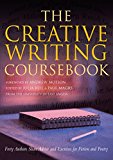
There are some excellent resources out there for creative writers. To get quick ‘starter’ images when your own well is dry I recommend The Writer’s Block by Jason Rekulak. I’m currently working through The Creative Writing Coursebook by Julia Bell and Paul Magrs and finding it very useful.
The next creative writing course session is how to write a short story. But before you move on to that, please feel free to leave a comment or ask a question in the box below.
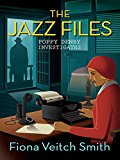
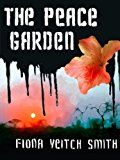
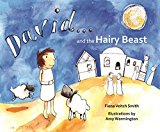
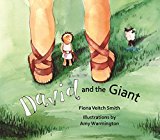
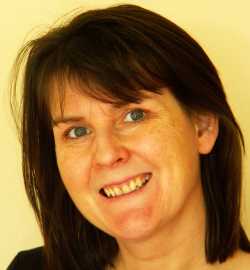 Welcome to The Crafty Writer's free online creative writing course, presented by Fiona Veitch Smith, a freelance journalist, editor, author, playwright, screenwriter and writing teacher. I hope that you'll see a dramatic improvement in the quality of your writing as you work through this course.
Welcome to The Crafty Writer's free online creative writing course, presented by Fiona Veitch Smith, a freelance journalist, editor, author, playwright, screenwriter and writing teacher. I hope that you'll see a dramatic improvement in the quality of your writing as you work through this course.
Your courses provide an incredible source of inspiration, hope and fulfillment for budding writers like me who has been desperate for such assistance.
Please accept my gratitude for your kindness.
Bayek.
You are most welcome
I am highly impressed with the creative writing courses and do sincerely hope they will polish me up in this domain,especially as a budding writer.
Thanks
otu george ekpe
Thank you Fiona! I am finding this course a thrill as well as an education.
Very glad to hear that Lina!
Well I have ghost written four novels, haven two of my own, and am also teaching a course on Novel Writing and on How To Tackle online Writng JObs.
I enjoy reading and learning how others teach writng and let me admit, i really like your style. Keep up the good work!
Thank you very much Naima. I hope you continue to enjoy the course.
i really has this premonition that this course will take me somewhere near to expressing my thoughts.
When do I see Exercise 4 or the next step?
Hi Christine, scroll to the bottom of the page and click the link to the next session.
I have a question about the punctuation characters you used in the second sentence of the first paragraph (Creativity and Art). From previous inquiries of mine on American-English-writing, I was under the impression that quotation marks (“quote”) should come after the period. “For example.” Is this incorrect? Furthermore, is this an ‘American style’ class? Please forgive me if my questions are elementary.
My second question is about the same sentence I mentioned above. When quoting from the Collins dictionary, you used (‘quote’) instead of (“quote”). Are the “quotation marks” when quoting a source only for APA style writing? If not, please explain.
Thank you very much! It is an honor to be blessed by someone’s grace who is willing to share his or her knowledge of something- for free!
Absolute best regards,
- Jason Huggett
Hello Jason,
Thanks for your questions. In the sentence you refer to, there is a partial quote within a broader sentence. In such a case the full stop (period) comes outside of the quote marks because it is ending the broader sentence. The quote within the sentence is not a complete sentence in itself so it is not conventional to put a full stop after it. If it had been a complete sentence I would have done so. Before we go any further in answering your punctuation questions, please note this is a course on creative writing not grammar and punctuation. The principles in this course can be used in any language or vernacular you choose to write. I am British but went to high school and undergraduate university in South Africa – but the spelling will be (largely!) British. As far as I’m aware punctuation does not vary between the British and American vernacular, but as you will see in the session on dialogue, the use of punctuation in creative writing can be very subjective. The use of single or double speech marks depends on the writer. Some writers will use single, others double – neither is incorrect but you should remain consistent. I tend to use double quotes for speech and single quotes for partial quotes within a broader sentence. One of the authors I am currently editing does the opposite. If in this course I inadvertently mix it up occasionally, don’t get hung up on it. As I said before, this is a course on creative writing not punctuation or editing. Just write. Once you have written something and want to polish it, then by all means edit it. You may use the AP Style Guide if you choose, that’s up to you. I hope you enjoy the rest of the course.
Happy writing!
Fiona
I think I have clicked on everything on this site but can’t actually find the course!!! is it still available?
Of course! This is the first page, you’re on it. To progress you can either go to the bottom of this page and click the link about the next session on how to write a short story or go back to the contents / home page and click through there.
This is the second question I’ve answered today about how to actually find the course or how to progress. Can I politely ask for people to read the page they’re on properly before asking where the course is, how to sign up or where to go next. It’s all in there. It takes time to respond to you. I do try to be helpful and respond to every question, but sometimes I feel like I’m just repeating myself. I don’t get paid to do this. Thank you
very intesting!
thank you it was really helpfull
Thank you so much,
I am now retired and in poor health; I have written poetry and short stories for my own amusement, all of my adult life, now I have all this spare time I was at a loss how to actually set the beast into motion. A quick stroll along the information superhighway and I found you. I’ve worked through the first section and I have a warm rosy glow of anticipation suffusing my creative core, that bodes well for the rest.
I will be in touch again.
N.A.Foran
Ah, what better way to spend your spare time than writing, Tony. I’m glad you’ve found us.
This is a great site–so glad I found it! Thanks for putting all the work into creating it.
Thank you Edie.
Thanks for the free course!
I will definitely favourite this and give it a go in my free time
-Ellie.
I love reading fiction, and have always been interested in writing a novel. I was a psychotherapist for thirty five years, which I really enjoyed, with the realization, that every single person has many stories to tell. I want to learn all that I can about novel and fiction writing.
Hi Cherie, I hope you enjoy the course and can draw on your vast wealth of story material.
All the best
Fiona
Would love to learn more about writing creatively
Good to have you on board, Ben!
I actually enjoyed both forms. After the short story I took the dog for a walk and found myself enlarging and changing what I’d written.
Thank you for this free online creative writing course. I did exercises 1-3 and found it useful and enjoyable, though at first I thought it wouldn’t work for me. I was surprised at how easy it could be to write a poem.
clear straightforward beautiful peace of a great teacher of creative writing. I admire it
how to publish a story after writing the story.
Is that a question, Christina? If you work through the course the final session will give you some tips on how to take your writing further and give you suggestions on competitions and publishing opportunities.